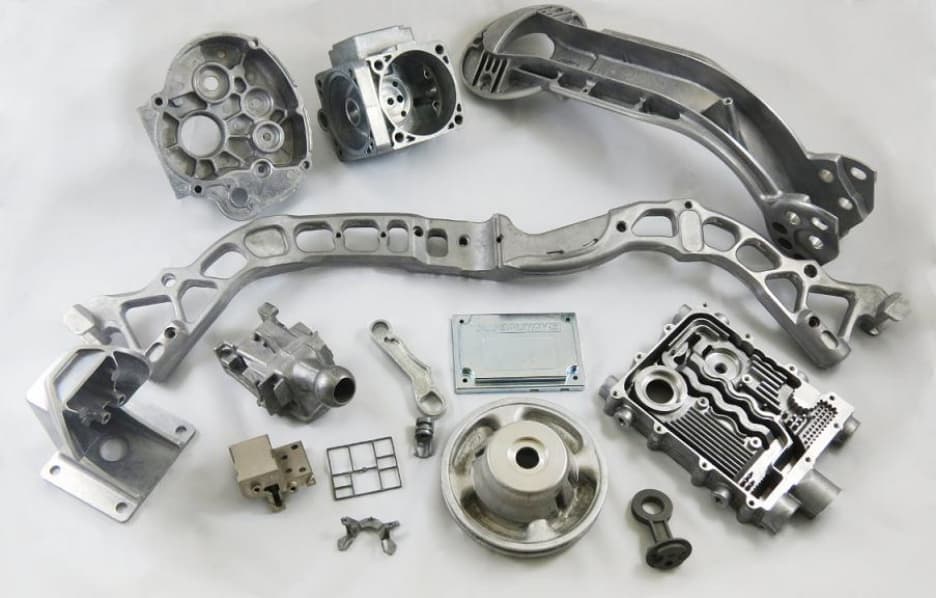How an Aluminum Casting Company maintains consistent output
Wiki Article
Ideal Practices for Maintenance and Applications in the Aluminum Foundry Industry: A Thorough Summary
Keeping equipment in the aluminum foundry sector is vital for functional success. Regular inspections and anticipating upkeep can substantially minimize downtime and boost safety. Advanced innovations, such as IoT and information analytics, play a crucial role in this process. Comprehending the full range of ideal methods requires a more detailed exam of specific techniques and their effects on effectiveness. What are the crucial parts that add to a trusted upkeep structure?Value of Regular Upkeep in Light Weight Aluminum Foundries
Routine maintenance plays a crucial role in the effective procedure of light weight aluminum foundries. By systematically evaluating and servicing tools, foundries assure peak efficiency and longevity of equipment. Routine upkeep tasks, such as cleaning, lubrication, and component substitute, assistance avoid unforeseen breakdowns that can lead to costly downtime.Routine checks boost office safety and security by determining prospective risks prior to they escalate into serious concerns. Tools that is properly maintained operates better, leading to enhanced item top quality and minimized waste. In addition, adherence to a structured maintenance timetable can support conformity with market regulations, thereby fostering a reputation for dependability and quality within the marketplace.
Carrying Out Predictive Maintenance Techniques
Predictive upkeep methods take the concepts of regular upkeep an action better by leveraging data analytics and progressed monitoring technologies. In light weight aluminum foundries, these strategies make it possible for operators to anticipate equipment failings before they take place, consequently reducing unintended downtimes and enhancing operational performance. By utilizing sensors and IoT devices, real-time data can be collected on machine efficiency, permitting the identification of prospective problems via predictive analytics.Enhancing Melting and Putting Processes
Efficient melting and putting processes are vital for taking full advantage of efficiency and ensuring the high quality of light weight aluminum spreadings. To boost these processes, shops should concentrate on precise temperature control during melting, as this directly impacts the metallurgical properties of the alloy. Using sophisticated melting innovations, such as induction and resistance melting, can enhance power efficiency and reduce cycle times.Applying automated putting systems decreases human mistake and preserves consistency in the pouring process. Correct mold prep work, consisting of appropriate preheating, is vital to prevent thermal shock and boost mold and mildew long life.

Enhancing Safety Methods in Factory Workflow
Focusing on security in light weight aluminum shop procedures is crucial for shielding workers and ensuring an effective setting. Reliable security protocols consist of regular training sessions that stress the relevance of personal safety tools (PPE), such as safety glasses, handwear covers, and helmets. Furthermore, the establishment of clear emergency situation procedures is necessary in managing prospective accidents.Normal inspections of equipment and equipment assistance identify dangers before they rise right into serious problems. Executing a durable coverage system urges employees to interact safety issues without fear of effect. Moreover, fostering a society of safety assurances that every staff member comprehends their role in maintaining a safe workplace.
Additionally, guaranteeing appropriate ventilation and surveillance air quality can reduce exposure to unsafe fumes and dirt. By enhancing these techniques, aluminum factories can greatly decrease the danger of accidents and produce an atmosphere where employees really feel valued and risk-free, inevitably enhancing overall operational aluminum casting company effectiveness.
Leveraging Technology for Improved Efficiency
Utilizing sophisticated modern technology has become progressively necessary for light weight aluminum shops intending to boost functional effectiveness. Automation and robotics play a crucial function in enhancing manufacturing procedures, reducing labor prices, and reducing human error. Carrying out real-time tracking systems enables for the continuous assessment of tools performance, allowing positive upkeep and minimizing downtime.
Additionally, the combination of data analytics offers valuable understandings right into functional operations, helping with better decision-making and source allocation. For instance, predictive analytics can identify possible failings prior to they occur, more maximizing upkeep timetables.
In addition, embracing advanced melting and spreading innovations improves energy effectiveness and product yield, which are fundamental for sustainability in the sector. By accepting these technological advancements, aluminum shops can not only enhance efficiency but likewise maintain an one-upmanship in a significantly demanding market (aluminum foundry). Ultimately, leveraging innovation is crucial in driving development and improving overall functional effectiveness within the market

Often Asked Inquiries
What Are Typical Signs of Equipment Use in Light Weight Aluminum Foundries?
Usual signs of devices wear in light weight aluminum factories consist of uncommon noises, lowered performance, enhanced resonance, overheating components, leaks, and noticeable rust. These indications frequently indicate the need for maintenance or possible substitute to avoid expensive downtime.Just How Can I Train Staff for Effective Maintenance Practices?
To educate team for effective maintenance techniques, one can implement hands-on workshops, create thorough manuals, motivate mentorship programs, and conduct regular evaluations to examine abilities and understanding, making certain all employees understand maintenance protocols thoroughly.What Are the Environmental Laws for Aluminum Foundries?
Aluminum foundries undergo numerous ecological regulations, including discharges control, waste administration, and source preservation. Conformity warranties marginal ecological influence, advertising sustainability while sticking to regional, national, and worldwide environmental standards and regulations.How Do Shops Take Care Of Waste and Recycling of Light weight aluminum?
Shops take care of waste and recycling by applying systems for accumulating scrap light weight aluminum, using sophisticated splitting up modern technologies, and working together with recycling facilities to assure efficient recovery procedures, consequently lessening environmental impact and promoting sustainability within the sector.What Are the Expenses Related To Executing Advanced Technologies?
Implementing advanced modern technologies in factories incurs significant costs, including first investment, training, and maintenance expenditures. The long-term advantages, such as raised effectiveness and lowered waste, often warrant these expenditures, leading to improved productivity. (aluminum casting company)
Report this wiki page